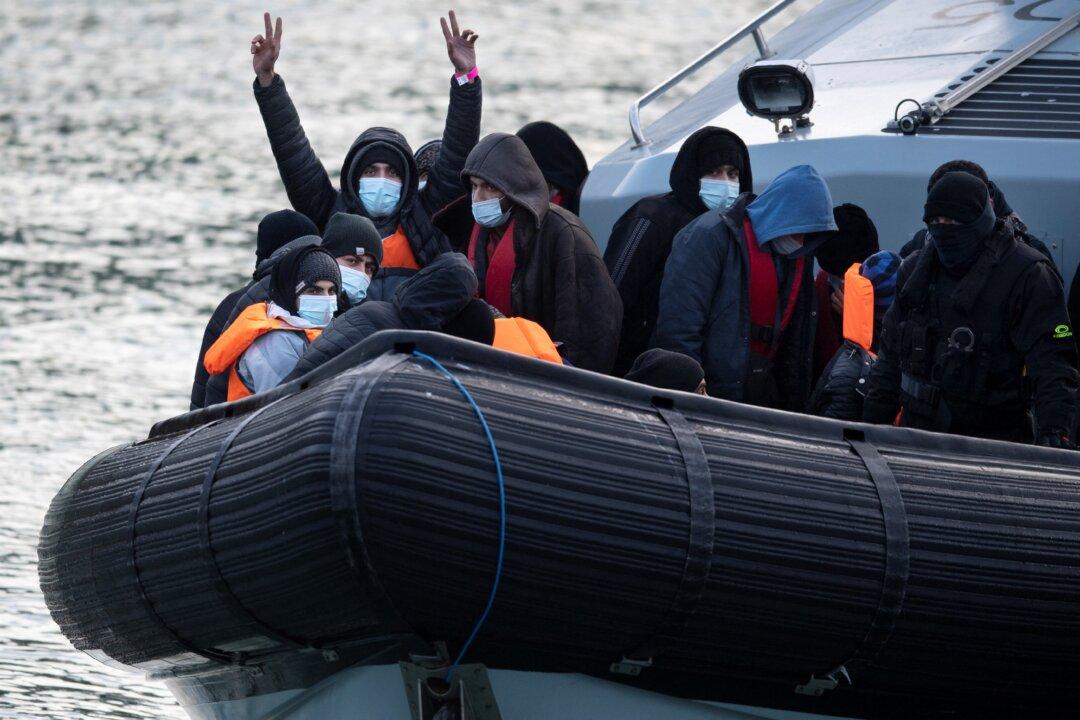Illegal immigrants who attempt to enter the UK by crossing the English Channel in small boats should be deported to an offshore processing centre within 48 hours, a British Conservative think tank has proposed.
In its latest report (pdf) published on Feb. 16, the London-based Policy Exchange think tank said the “most obviously suitable” location for such processing centres is Ascension Island, a British overseas territory in the South Atlantic Ocean that is 4,000 miles away from the UK.





